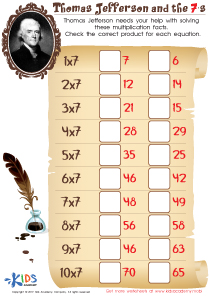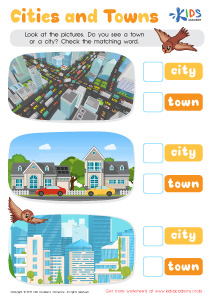Understanding citizenship Easy Social Studies Worksheets for Ages 3-9
3 filtered results
-
From - To
Explore our engaging "Understanding Citizenship" worksheets designed for young learners aged 3-9. These easy-to-follow social studies activities introduce children to the basics of citizenship, community roles, and responsibilities in a fun and interactive way. Each worksheet fosters critical thinking, encourages discussions about rights and duties, and helps children develop a sense of belonging within their communities. Perfect for classroom use or at-home learning, our worksheets are aligned with early education standards. Promote civic awareness and a sense of responsibility through creativity and exploration. Visit us and support your child’s journey into understanding what it means to be an active citizen!
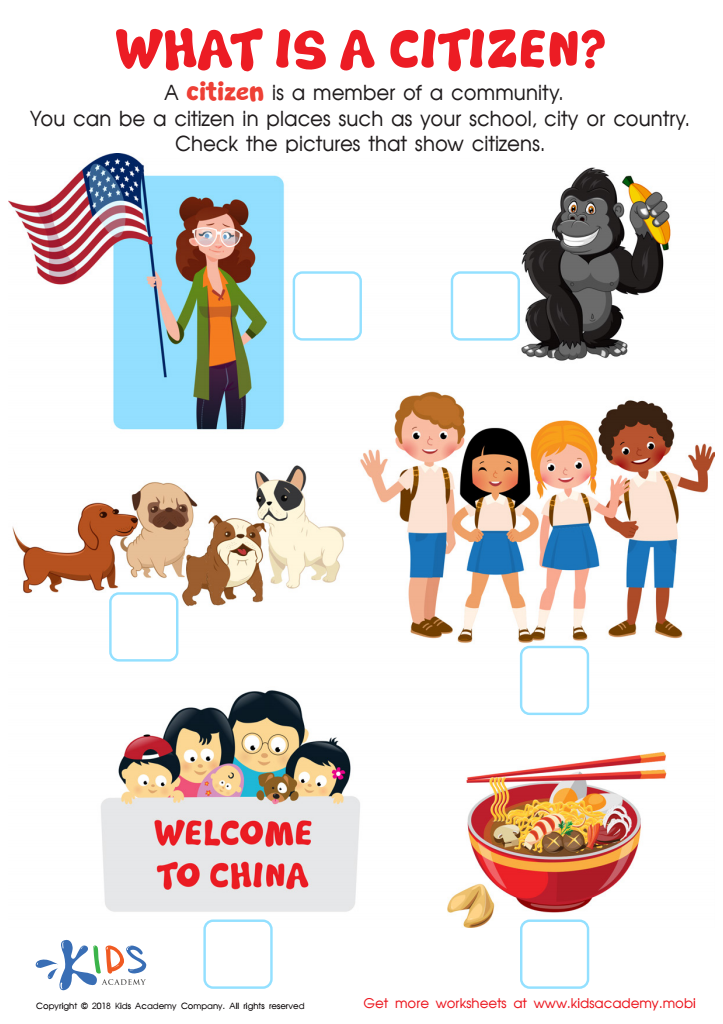

What is a Citizen? Worksheet
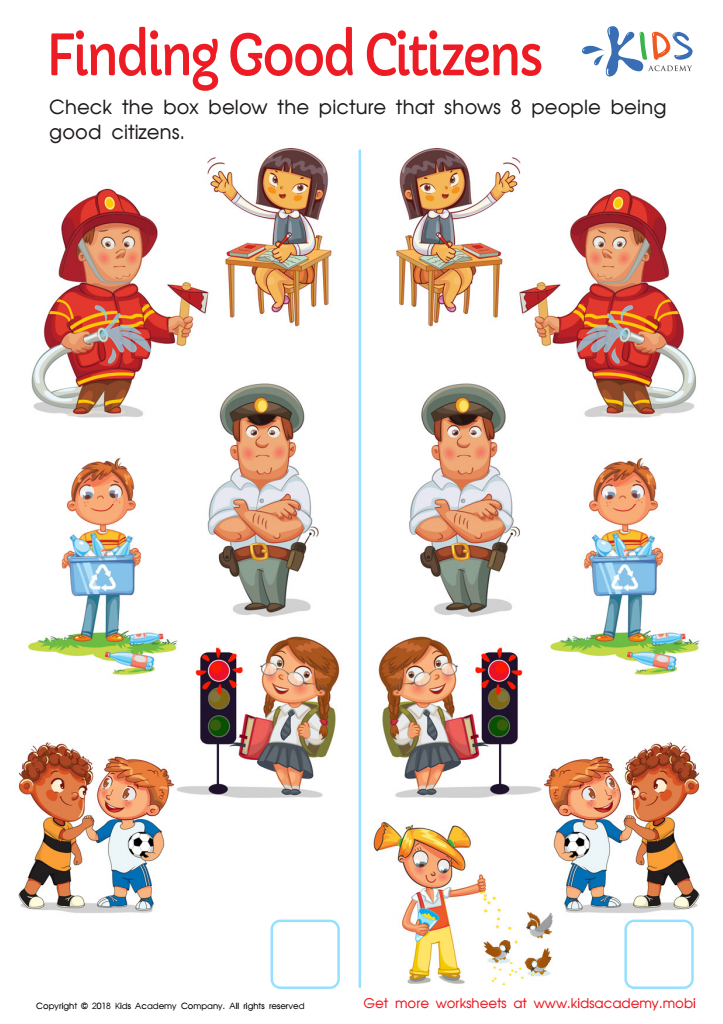

Finding Good Citizens Worksheet
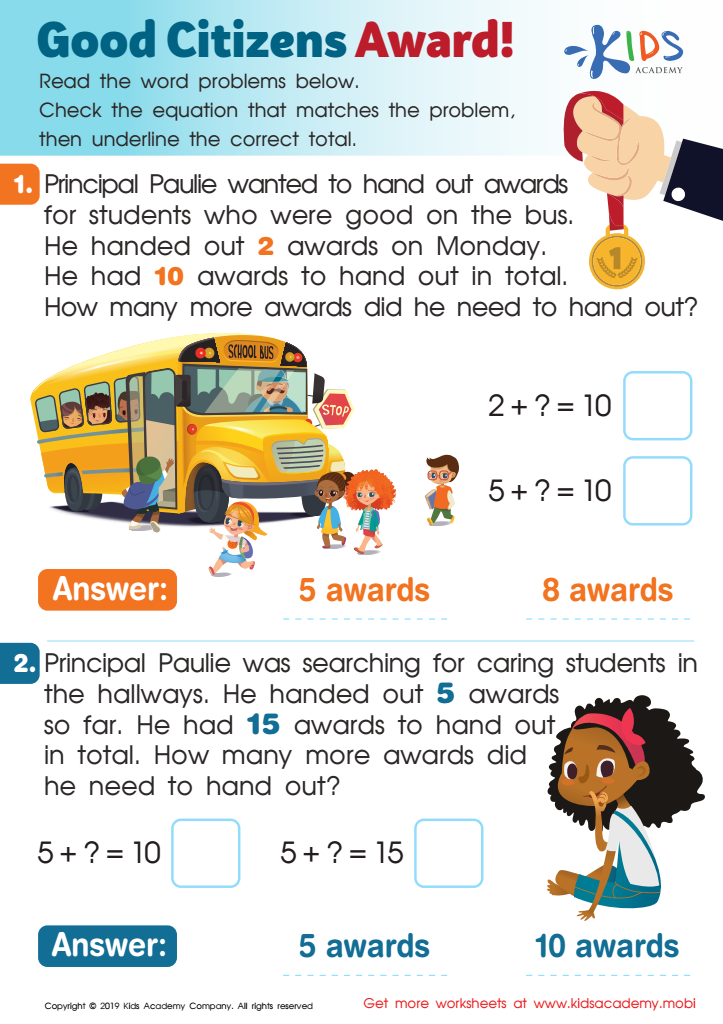

Good Citizens Award! Worksheet
Understanding citizenship is vital for children ages 3-9, and parents and teachers play a crucial role in fostering this knowledge. At this young age, children begin to form their identities and learn about their place in the world. Introducing concepts of citizenship can help them understand responsibility, community, and their rights and duties as members of society.
Incorporating citizenship into social studies allows children to grasp fundamental values like respect, fairness, and empathy. By learning about diverse cultures and communities, they develop an appreciation for differences, laying the groundwork for inclusive attitudes and behaviors. Activities like sharing stories about community helpers or engaging in group projects empower children to recognize their ability to contribute positively.
Additionally, understanding citizenship helps children develop critical thinking skills as they engage with age-appropriate discussions about rules, leadership, and cooperation. This foundational knowledge nurtures active, informed, and responsible future citizens who are equipped to navigate societal challenges.
Ultimately, teaching young learners about citizenship provides them not only with knowledge but also with a sense of belonging and purpose. By prioritizing this education, parents and teachers can significantly influence children's futures, encouraging them to grow into conscientious and engaged adults.

 Assign to My Students
Assign to My Students










